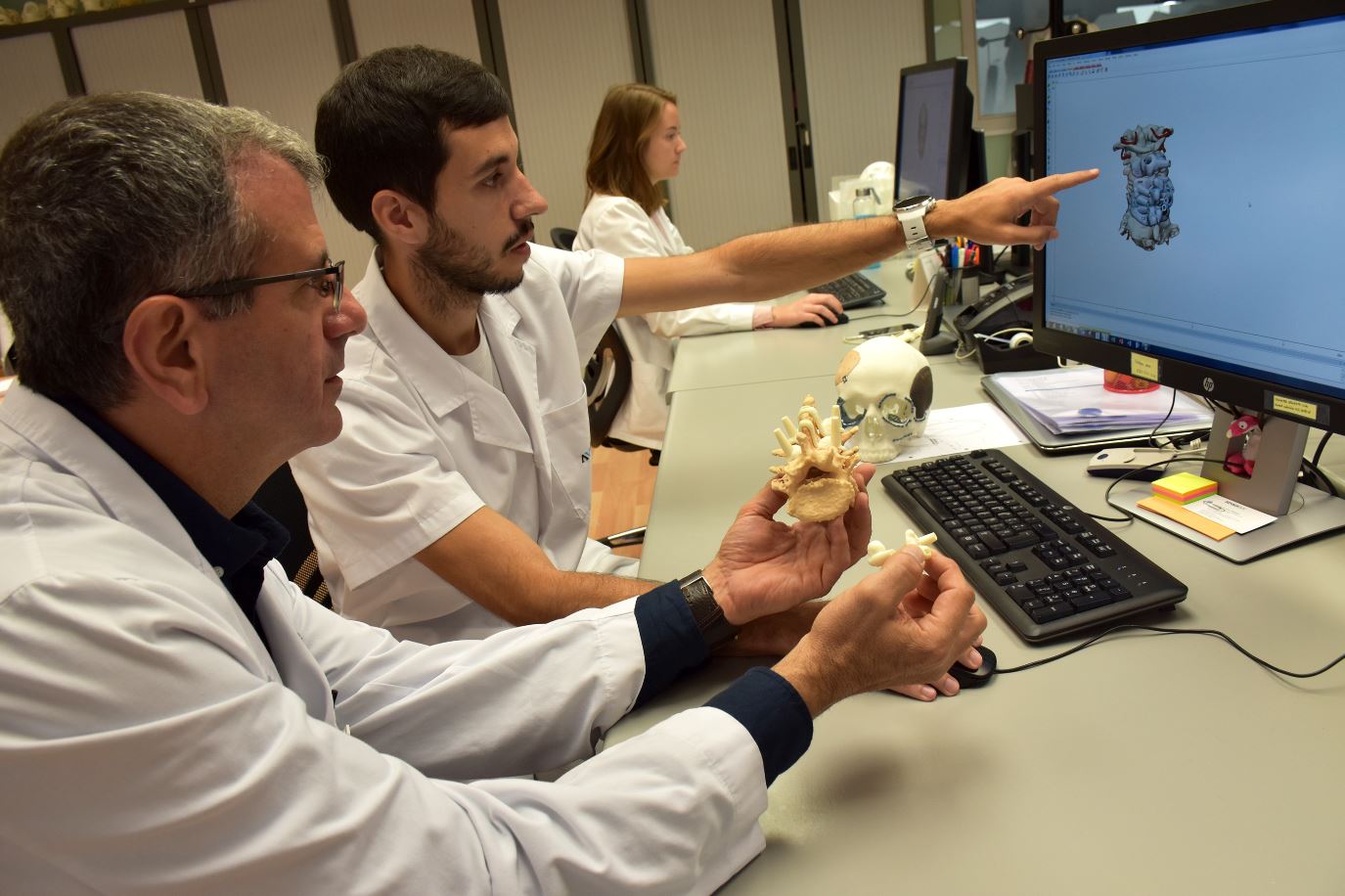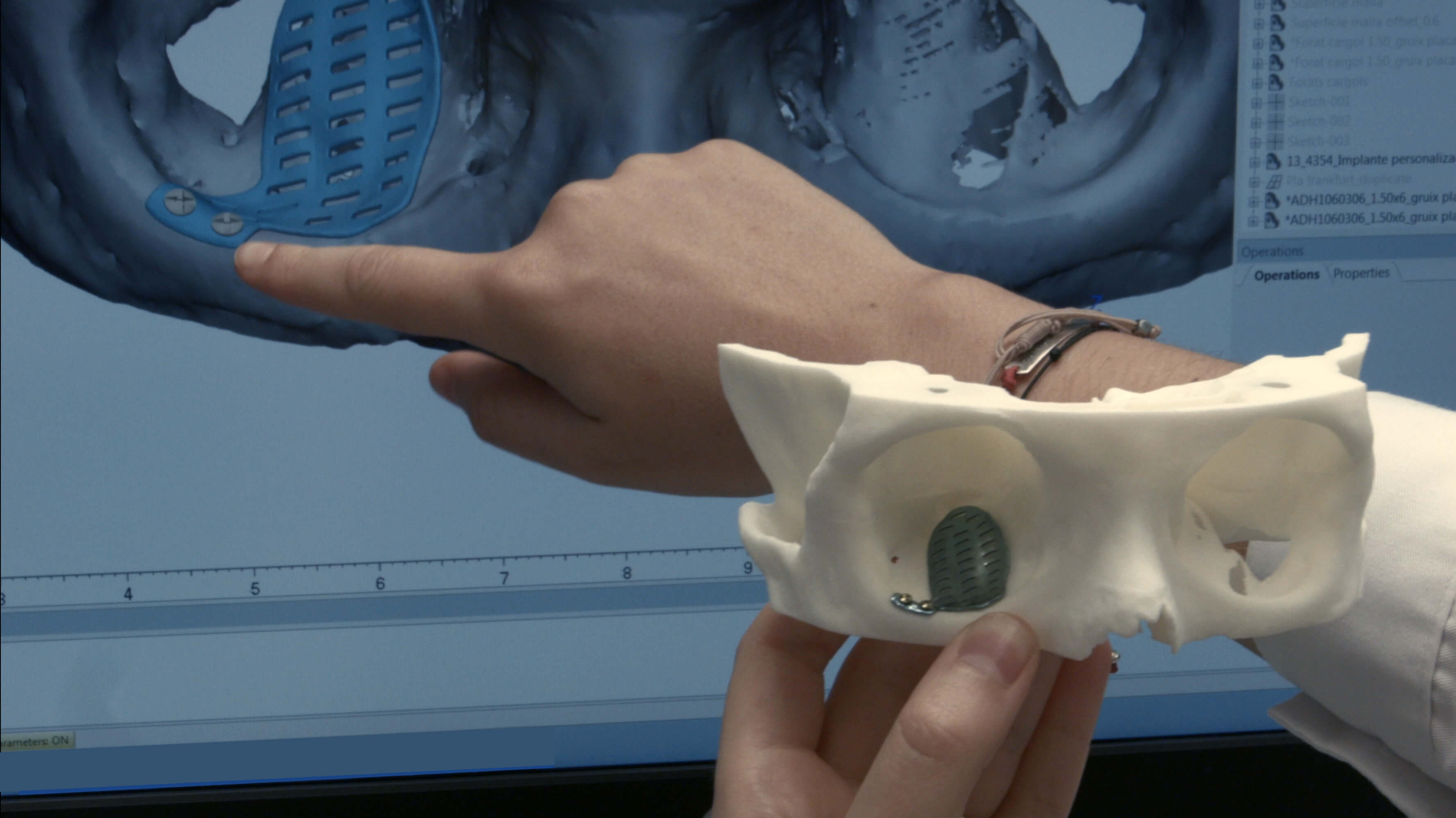

Acquiring the necessary knowledge and corresponding qualification to apply 3D printing and bioprinting in healthcare will be possible as of this February, thanks to the Expert in 3D printing and bioprinting in healthcare, which has been jointly organised by UManresa – FUB, the Fundació Althaia and AVINENT. The training course, the first of its kind in Catalonia, is aimed at both the professionals of the medical sector (doctors, nurses and technical personnel), as well as bioengineers, mechanical engineers and biotechnologists, and also those responsible for innovation and the application of new technologies in healthcare centres.
The 3D printing and bioprinting sector has all the components in its favour to boldly enter medical centres and hospitals. In fact, the healthcare sector has been one of the pioneers in incorporating 3D printing and the outlook is that its use will only increase. The additive manufacturing technologies are today offering a series of solutions, ranging from anatomical models, cutting guides, splints and implantable dentures, all thanks to 3D printing, which is revolutionising the sector, streamlining the work of medical professionals and considerably improving the results for the patient. These technologies are cross-sectional, flexible and have a greater added value, which can be translated as personalised medicine, greater agility, faster action and greater clinical safety for the patients.

In this regard, Albert Giralt, CEO of AVINENT, highlights a distinguishing element of the course, the fact that “until now, training in 3D printing technologies had focused more on providing knowledge regarding the procedures, the techniques employed, whereas, this training course is unique because it focuses on the application of 3D printing in a sector such as healthcare. Which until now had yet to be discovered.”
This week, the director of the Fundació Universitaria del Bages (FUB), Valentí Martínez, and the director of the Althaia Foundation, Manel Jovells, signed a partnership agreement in order to create university programmes in 3D printing and bioprinting. As a result of this agreement, next February will see the start of the Expert in 3D printing and bioprinting in healthcare course, which forms part of a Masters in 3D printing and bioprinting. The fact that this training is the first with these characteristics in Catalonia reinforces the commitment and leadership of central Catalonia in the introduction of this technology into the Catalan healthcare sector.
Valentí Martínez affirms that “it is important for the University to form part of this project as in the future it must become a leader in the area of 3D printing and healthcare training.”
The head of training and coordination of the 3D printing and bioprinting service at Althaia and the Director of the Masters in 3D printing and bioprinting in healthcare, Bartomeu Ayala, highlighted that “3D printing allows us, the medical professionals, to be more precise. And precision is equal to being faster, more efficient, less invasive… ultimately, better.” Ayala added that with the leadership of the three entities in central Catalonia (UManresa – FUB, the Althaia Foundation and AVINENT) “we will achieve that the application of innovation technologies becomes available to more people and entities.”
The course has the backing of ACC1O of the Generalitat de Catalunya (the regional government of Catalonia) and Unió Consorci Formació, the Societat Catalana de Salut Digital and TIC Salut Social. The aim of the training is to raise awareness of the possibilities of the application of 3D and bioprinting in the healthcare sector, the different types of technologies and materials that are used, as well as the regulations for their application, to experiment on the basis of projects that provide responses to real or simulated clinical cases and to raise awareness of the main experiences and work groups.